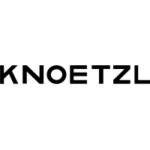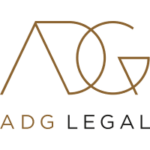-
What are the key financial crime offences applicable to companies and their directors and officers? (E.g. Fraud, money laundering, false accounting, tax evasion, market abuse, corruption, sanctions.) Please explain the governing laws or regulations.
The following are some of the key financial crimes prosecuted at the U.S. federal level:
- Crimes related to money laundering and terrorist financing activities, which include domestic money laundering 18 U.S.C. § 1956(a)(1), international money laundering 18 U.S.C. § 1956(a)(2), transacting in proceeds of specified unlawful activity 18 U.S.C. § 1957(a), money services businesses (“MSBs”) violations 18 U.S.C. §1960(b), willful violations of the Bank Secrecy Act (“BSA”) 31 U.S.C. §§ 5321-5322, bulk cash smuggling 31 U.S.C. § 5332, providing material support to terrorists 18 U.S.C. § 2339A, and providing material support or resources to designated foreign terrorist organizations 18 U.S.C. § 2339B.
- Corporate fraud, including violations of the mail and wire fraud statutes 18 U.S.C. §§ 1341, 1343, securities fraud 15 U.S.C. § 78ff(a) and 15 U.S.C. § 77(x), bank fraud 18 U.S.C. § 1344, tax fraud 26 U.S.C. §§ 7201, 7206, embezzlement 18 U.S.C. § 656, and false statements in matters within the jurisdiction of the executive, legislative, or judicial branch of the U.S. Government 18 U.S.C. § 1001.
- Violations of U.S. Anti-corruption statutes, including the Foreign Corrupt Practices Act of 1977 (“FCPA”) 15 U.S.C. § 78dd-1, et seq., which punishes the bribery of foreign officials, and statutes prohibiting the bribery of U.S. officials, such as 18 U.S.C. § 201 (bribery of public officials and witnesses), and 18 U.S.C. § 666 (theft or bribery concerning programs receiving Federal funds).
- Insider trading, which is typically prosecuted under Section 10(b) of the Exchange Act and Rule 10b-5, which broadly prohibit the use of a “deceptive device”, the making of a false statement, or engaging in an act that operates as a fraud or deceit in connection with the purchase or sale of a security.
- Sanctions evasion under the laws pertaining the economic sanctions administered by the Office of Foreign Assets Control (“OFAC”), such as the International Emergency Economic Powers Act 50 U.S.C. §§ 1701–1707. Typically, the U.S. Government will criminally prosecute willful violations of OFAC Sanctions, or violations of the reporting and recordkeeping requirements for Sanctions 31 C.F.R. §§ 501.601–06.
- Crimes punishing cryptocurrency-related crimes, which include fraud and related activity in connection with computers 18 U.S.C. § 1030, wire fraud 18 U.S.C. §1343, money laundering 18 U.S.C. §1956, and fraud and related activity in connection with identification documents, authentication features, and information 18 U.S.C. §1028.
-
Can corporates be held criminally liable? If yes, how is this determined/attributed?
Yes, corporations may be held criminally liable. A State or Federal statute will typically provide the legal basis for authorities to investigate and prosecute the corporation, as well as the way in which a corporation’s criminal liability should be determined. Additionally, under the common law doctrine of respondeat superior, a corporation may be held liable based on the actions of its directors, officers, employees, or other agents if those actions were within the scope of the agent’s duties and benefited or sought to benefit the corporation. The corporation need not to profit from an agent’s criminal actions for it to be held liable.
According to DOJ’s Principles of Federal Prosecution of Business Organizations, there are eleven factors that federal prosecutors should consider in deciding whether to criminally charge a corporation: (1) the nature and seriousness of the offense, including the risk of harm to the public and priorities, if any, governing the prosecution of corporations for particular categories of crime; (2) the pervasiveness of wrongdoing within corporation, including the complicity in, or the condoning of, the wrongdoing by corporate management; (3) the corporation’s history of similar misconduct, including prior criminal, civil, and regulatory enforcement actions against it, both domestically and internationally; (4) the corporation’s willingness to cooperate, including as potential wrongdoing by its current and former employees, directors, officers and agents, as well as other individuals and entities that engaged in the misconduct under investigation; (5) the adequacy and effectiveness of the corporation’s compliance program at the time of the offense, as well as at the time of a charging or resolution decision; (6) the corporation’s timely and voluntary disclosure of wrongdoing; (7) the corporation’s remedial actions, including any efforts to implement an adequate and effective corporate compliance program or to improve an existing one, to replace responsible management, to discipline or terminate wrongdoers, or to pay restitution; (8) collateral consequences, including whether there is disproportionate harm to shareholders, pension holders, employees, and others not proven personally culpable, as well as impact on the public arising from the prosecution; (9) the adequacy of remedies such as civil or regulatory enforcement actions, including remedies resulting from the corporation’s cooperation with relevant government agencies; (10) the adequacy of the prosecution of individuals responsible for the corporation’s malfeasance; and (11) the interest of any victims, including what steps the corporation has taken to identify potential victims, or other persons or entities who were significantly, even if indirectly, harmed by the criminal conduct, and what steps the corporation has taken to mitigate such harm.
-
What are the commonly prosecuted offences personally applicable to company directors and officers?
Absent clear legislative intent to exclude corporate agents from personal responsibility for acts they commit; they cannot use the corporate entity as a shield against liability for their crimes. Accordingly, directors and officers may be held criminally liable under the offences listed in response to question number 1. Additionally, these individuals may be prosecuted for conspiring to commit, and/or aiding and abetting, these crimes.
-
Who are the lead prosecuting authorities which investigate and prosecute financial crime and what are their responsibilities?
At the federal level, the following Government agencies often participate in the investigation and prosecution of financial crimes in the U.S.:
- Department of Justice (“DOJ”), which includes the US Attorney’s Office (“USAO”) in each federal district and the Federal Bureau of Investigation (FBI), has the power to investigate and prosecutes federal crimes, or bring civil enforcement actions. Additionally, DOJ has created recently new units for Russians and asset recovery.
- Department Homeland Security (“DHS”), through divisions such as Homeland Security Investigations (“HSI”), U.S. Immigration and Custom Enforcement (“ICE”), and U.S. Customs and Border Protection (“CBP”), investigates crimes related to cross-border criminal activities that threaten the U.S. security and economy, as well as criminal enterprises that engage in a broad range of illicit activity including narcotics smuggling, human trafficking, gang violence, trade-based money laundering and other financial crimes, intellectual property theft, and customs fraud.
- Securities and Exchange Commission (“SEC”), through its Enforcement Division, investigates possible violations of federal securities laws and the regulations promulgated thereunder. The SEC prosecutes violations through civil enforcement actions and administrative proceedings and makes referrals to the DOJ for criminal prosecution.
- The U.S. Secret Service has the responsibility to investigate crimes against the U.S. financial system committed by international criminals and in the cyber space.
- S. Drug Enforcement Administration (“DEA”) may also investigate bank fraud and other financial crimes related to drug trafficking activities.
- The Commodity Futures Trading Commission (“CFTC”) investigates possible violations of the Commodity Exchange Act and its regulations. It prosecutes violations through civil enforcement actions and administrative proceedings and makes referrals to the DOJ for criminal prosecution.
- The Internal Revenue Service, Criminal Investigation (“IRS-CI”) investigates potential violations of the federal tax laws and related financial crimes, such as money laundering.
- The Federal Trade Commission (“FTC”) conducts investigations of potential violations of the Federal Trade Commission Act such as unfair or deceptive acts or practices, fraud, scams, identity theft, false advertising, and privacy violations. The FTC may bring civil actions in court to enforce its regulations or make referrals to DOJ for criminal prosecution.
- The U.S. Department of the Treasury’s Financial Crimes Enforcement Network (“FinCEN”), which receives, analyzes, and disseminates financial transactions data for law enforcement purposes in the U.S., especially in aid of criminal investigations and prosecutions to combat violations of the U.S. Bank Secrecy Act, money laundering, terrorism financing, fraud, tax evasion, and narcotics trafficking.
-
Which courts hear cases of financial crime? Are they determined by tribunals, judges or juries?
State or federal courts hear cases of financial crime that fall under the court’s jurisdiction, which is determined based on the statute that was allegedly violated by the criminal suspect, the specific circumstances of the crime, the place in which the crime took place, and on the involvement of a federal agency in the criminal investigation and/or prosecution. Typically, cases of financial crime are heard by a U.S district court as such crimes often involve violations of federal law, cross state lines, or involve the channels or instrumentalities of commerce, such as the U.S. financial system. The U.S. does not have courts specialized in hearing financial crime cases.
In cases of financial crime, defendants are generally entitled to trial by jury pursuant to Article III, Section 2 of the U.S. Constitution, and the Sixth Amendment. A criminal defendant may waive the right to a jury trial and seek a bench trial before a judge. Moreover, the U.S. Supreme Court has held that defendants have a constitutional right to a jury trial only in “serious” criminal cases. Petty offenses—those that carry the possibility of six months or less in jail—are not guaranteed a jury trial. The U.S. Supreme Court’s ruling, though, sets a minimum standard. States are free to provide greater jury-trial rights to criminal defendants, not less.
-
How do the authorities initiate an investigation? (E.g. Are raids common, are there compulsory document production or evidence taking powers?)
An investigation is usually initiated when a government agency receives credible information reporting an activity that violates federal or state laws or regulations, including criminal activity or regulatory infractions. Such information may come from a human source (like the victim, a witness, or an informant), a written report (like a suspicious activity report), a request made by a foreign Government, or even from publicly available sources. An often used method to obtain information, is for the U.S. Government to revoke the U.S. visa of the subjects of a criminal investigation so that person is incentivized to come forward and inquire and/or cooperate with law enforcement authorities.
The Government may compel the production of information, documents, and testimony relevant to the case through subpoenas, which in the context of criminal investigations are typically issued by grand juries. Federal grand juries are selected by the court in each federal judicial district and are organized under the supervision and direction of the chief judge of a federal district court. At the state level, the selection, organization, and supervision of a grand jury may vary. A search warrant authorizes a law enforcement agency to search designated premises and seize specific items or documents.
-
What powers do the authorities have to conduct interviews?
Government investigators may interview a person who is or may be in possession of information relevant to the matter under investigation. Generally, investigators will seek a person to voluntarily appear for interview at an agreed location or designated Government facility. U.S. agents typically may not stop or summon a person for interview unless they have a warrant or court order to do so, or have developed specific articulable facts that the person being questioned is, or is attempting to be, engaged in an offense against the U.S. However, such protections may not apply at the U.S. border or its functional equivalent, which is one of the reasons why investigation agencies may seek the assistance of U.S. Customs and Border Protection, a division of the U.S. Department of Homeland Security, to stop a person at a transportation hub for interview.
At the federal level, when the Government requires the testimony of a person in connection with an ongoing criminal investigation, it may seek a Grand Jury subpoena compelling that person’s declaration. This subpoena may also be used to order the person to produce records material to the criminal investigation. States provide for similar legal avenues for law enforcement to compel the appearance of a person for interview. The difference between the two sovereigns is that, with a state subpoena compelling a person’s appearance for interview, statutory use immunity may attach automatically. In the federal system, use immunity is not automatic and must be always negotiated with the Government before someone appears for interview.
-
What rights do interviewees have regarding the interview process? (E.g. Is there a right to be represented by a lawyer at an interview? Is there an absolute or qualified right to silence? Is there a right to pre-interview disclosure? Are interviews recorded or transcribed?)
Interviewees do not generally have a right to be represented by a lawyer at an interview. The Sixth Amendment right to right to assistance of counsel applies to the custodial interrogation of a criminal suspect, or during the critical stages of a criminal proceeding after the suspect has been charged by the authorities. In practice, however, law enforcement agencies may allow an interviewee to attend an interview accompanied by counsel, even if the interviewee has no criminal exposure.
If the interview is conducted in circumstances such that a reasonable person might conclude that the person is not free to leave (i.e., the interview is “custodial”), Miranda rights will attach, and the Government will be required to advise that person about (1) the right to remain silent, (2) that anything the person says may be used in court, (3) the right to an attorney resent during questioning, and that, if the person is indigent, an attorney will be provided at no cost to represent him/her. Upon receiving the Miranda warnings, subsequent voluntary statements made by the criminal suspect to a Government agent will be admissible in court.
There is no right to pre-interview disclosure of evidence and the interviews may not be recorded or transcribed (although, in practice, they are). Further, interviewees have no right to receive a copy of such recording/transcript.
Depending on the skill, experience, and relationship with law enforcement authorities some or much of this information can be obtain before the interview.
-
Do some or all the laws or regulations governing financial crime have extraterritorial effect so as to catch conduct of nationals or companies operating overseas?
Federal legislation is presumed not to apply extra-territorially, and due process generally requires U.S. authorities to only prosecute crimes that have a U.S. nexus. However, certain federal statutes may grant jurisdiction for U.S. law enforcement to investigate and prosecute international crime based on the text of the statute and legislative intent. For example, the Money Laundering Control Act of 1986 may be used to target foreign individuals and financial institutions involved in money laundering activities if the financial transaction takes place in whole or in part in the U.S. or, if the foreign financial institutional maintains a bank account at a U.S. financial institution. Similarly, the Foreign Extortion Prevention Act (“FEPA”), which was signed by President Biden into law on December 22, 2023, enables the U.S. Government to investigate and prosecute foreign officials that solicit or accept bribes. Foreign persons that conspire to violate, or cause a violation of, U.S. criminal laws, may also face criminal prosecution in the U.S.
-
Do the authorities commonly cooperate with foreign authorities? If so, under what arrangements?
U.S. authorities and foreign authorities frequently and commonly cooperate for the investigation and prosecution of financial crime. For instance, U.S. authorities regularly obtain information overseas through the more than 40 mutual legal assistance treaties (“MLAT”) that have been ratified by the U.S. The MLATs also provide means for seizing assets located in other jurisdictions. Notably, the U.S. is a party to the Inter-American Convention Against Corruption, which provides for evidence sharing between 34 American countries.
Additionally, 18 U.S.C. § 3512, often referred to as the Foreign Evidence Request Efficiency Act, provides a legal framework for U.S. federal courts to assist in gathering evidence for use in foreign criminal proceedings. Under this statute, U.S. district courts have the authority to issue orders necessary to execute requests from foreign authorities. This can include orders to compel testimony, produce documents, or conduct searches and seizures.
Further, FinCEN works closely with the Financial Intelligence Units’ of other countries to share, analyze, and disseminate with U.S. law enforcement information coming from suspicious activity reports prepared by financial institutions around the world.
-
What are the rules regarding legal professional privilege? What, if any, material is protected from production or seizure by financial crime authorities?
Attorney client-privilege and the work-product doctrine limit the U.S. Government’s ability to obtain information and documents from attorneys during a criminal investigation. The evidentiary attorney-client privilege precludes the discovery of a client’s communication to a lawyer whom the client reasonably believes represents the client when the circumstances indicate a desire by the client for confidentiality.
The attorney-client does not attach to statements made to an attorney not regarding legal advice or services sought by the client, to discovery of the facts underlying the communication, or to communications made to an attorney who is acting in a capacity other than as a lawyer. Moreover, under the crime/fraud exception to the attorney-client privilege, clients may not prevent discovery of communications made to enable or aid the commission of what the client knew or should have known was a crime or fraud.
The attorney-client privilege is treated slightly differently when the defendant is a corporation. Some states limit the privilege to communications received by an attorney from a member of the “control group” of the corporation. However, in federal cases where federal law controls, the privilege extends to communications by non-control group employees about matters within the employee’s corporate duties made for the purpose of obtaining legal advice for the corporation.
Under the work-product doctrine, documents prepared by or for a party or by or for a party’s attorney in anticipation of litigation, are also protected. However, these documents are subject to discovery if the party seeking disclosure (i) demonstrates a substantial need for the information, and (ii) cannot obtain the information by any other means without undue hardship. The mental impressions, conclusions, and trial tactics of a lawyer are protected from discovery, regardless of another party’s need for the information or inability to otherwise obtain it.
-
What rights do companies and individuals have in relation to privacy or data protection in the context of a financial crime investigation?
The U.S. government has extensive investigatory powers to obtain private and financial information material to an ongoing criminal investigation.
The Fourth Amendment to the U.S Constitution confers privacy rights to U.S individuals and companies that may limit the Government’s ability, both at the state and federal level, to obtain private records in connection with a financial crime investigation. Specifically, the Fourth Amendment establishes the people’s right to be secure in their persons, houses, papers, and effects, as well as protection against unreasonable searches and seizures. In the context of bank records, however, the Supreme Court has held that individuals and companies do not have an expectation of privacy protected under the Fourth Amendment. See United States v. Miller, 425 U.S. 435 (1976).
In response to the Court’s decision in Miller, the Congress passed the Right to Financial Privacy Act of 1978 (“RFPA”), which confers some federal statutory protections for personal financial records. Notably, this Act generally requires banks to provide individuals with notice when bank records are being subpoenaed, and an opportunity to be heard with respect to that request. RFPA also establishes standing to seek judicial relief against violations of the appropriate procedures laid out in the RFPA.
However, the RFPA has been amended several times to permit greater access without customer notice to information requested for criminal law enforcement purposes and for certain intelligence activities. Additionally, the RFPA does not govern requests for financial records made by or state or local governments, and the RFPA only protects the records of individuals and partnerships with 5 or fewer partners. Moreover, the Federal Government may use investigatory tools different from a subpoena or a search warrant to obtain records material to a financial crime investigation, including interviews with human sources that might be in possession of the information sought by the Government, or mutual legal assistance requests with other countries. The Government may also be in possession of the relevant information in connection the filing of a Suspicious Activity Report (SAR) by a financial institution.
As a result, U.S. investigatory agencies will generally be able to access the documents, electronic information, and other data of companies and individuals in connection with a criminal investigation.
-
Is there a doctrine of successor criminal liability? For instance in mergers and acquisitions?
State and federal law generally enforce the doctrine of successor criminal liability in the context of financial crime. Accordingly, a successor corporation may be held derivatively liable for the criminal acts of the predecessor corporation. Whether the successor will be liable is often dependent on whether the transaction involved a merger, a consolidation, or an asset acquisition.
In both a merger and a consolidation, the predecessor corporation is dissolved and only one corporation survives. In this instance, the surviving corporation will generally be held liable for the predecessor’s criminal acts. For this reason, companies will often structure the transaction as an asset acquisition. However, even in this instance, U.S. law establishes exceptions that may result in the buyer assuming the seller’s criminal liability, such as when the buyer expressly or impliedly assumes the liability, buyer is an alter ego of the seller, the asset acquisition is deemed a de facto merger/consolidation, or when the transfer was fraudulent or intended to avoid liabilities.
U.S. Government agencies encourage companies to conduct due diligence prior to the transaction and improve compliance programs and internal controls after the transaction. These compliance efforts are a factor that authorities generally consider favorably when deciding whether to prosecute an apparent violation of U.S. laws and regulations, or for calculating the appropriate penalty.
-
What factors must prosecuting authorities consider when deciding whether to charge?
First and foremost, State Department policies, priorities and directives targeting specific individuals, countries, companies, industries, and groups. Additionally, DOJ’s Principles of Federal Prosecution advise federal prosecutors to weigh the following considerations in deciding whether to charge individuals: federal law enforcement priorities; the nature and seriousness of the offense; the deterrent effect of prosecution; the person’s culpability in connection with the offense; the person’s history of criminal activity; the person’s willingness to cooperate in the investigation or prosecution of others; person’s personal circumstances, interests of any victims, and the probable sentence or other consequences if the person is convicted. State prosecutors consider similar factors when deciding whether to bring criminal charges against an individual.
-
What is the evidential standard required to secure conviction?
The evidential standard required by U.S. law to obtain a criminal conviction is “beyond a reasonable doubt.” Accordingly, prosecutors are required to persuade the jury (or the judge in a bench trial) that there is no other reasonable explanation that can result from the evidence presented for the case at trial. The trier of facts must be fully satisfied and entirely convinced to a moral certainty that the evidence presented proves the guilt of the defendant. This standard of proof is much higher than the standard generally required in civil cases, which is named “preponderance of the evidence,” and requires a certainty greater than 50 percent.
-
Is there a statute of limitations for criminal matters? If so, are there any exceptions?
The statute of limitations for most federal crimes is five years. See 18 U.S.C 3282. However, some crimes have longer statutes of limitations such as bank fraud (ten years), tax crimes (six-years), major fraud against the U.S. government (seven years), or crimes involving banks and other financial institutions (10 years). Also, the statute of limitations may be “tolled” (legally suspended) (i) during periods of fugitivity, (ii) on application of the United States, during the pendency of an official request to a foreign court or authority to obtain evidence located in a foreign country; or (iii) in the absence of a legal provision if the Government and the defendant enter into a voluntary tolling agreement.
-
Are there any mechanisms commonly used to resolve financial crime issues falling short of a prosecution? (E.g. Deferred prosecution agreements, non-prosecution agreements, civil recovery orders, etc.) If yes, what factors are relevant and what approvals are required by the court?
The U.S. has mechanisms to resolve financial crime issues falling short of a prosecution. In fact, U.S. prosecutors often resolve financial crime cases through informal and formal, oral or written, non-prosecution agreements (“NPAs”), and deferred prosecution agreements (“DPAs”). Under an NPA, the DOJ does not prosecute the target of the investigation if the target agrees to cooperate with the Government and to implement remedial and/or compliance measures. The NPA is not filed with the court, and instead is kept between the parties.
Under a DPA, the Government files a charging document with the Court, and it simultaneously requests that the prosecution be postponed for the purpose of allowing the target of the criminal investigation to demonstrate good conduct. DPAs generally require the defendant to pay a monetary penalty, waive the statute of limitations, cooperate with the Government, admit the facts underlying the criminal charges, and implement compliance and/or remediation commitments. If the defendant complies with the DPA, the Government moves to dismiss the criminal charges or civil enforcement action.
In deciding to enter into a DPA or a NPA with the target of the criminal investigation, federal prosecutors will take into consideration the factors set forth by the Principles of Federal Prosecution (see answer to question 14 above). The Government does not require the court’s approval for entering into a DPA or a NPA with the target.
-
Is there a mechanism for plea bargaining?
Yes. Plea agreements require the defendant to accept all or some of the criminal charges, in exchange of one of the following actions of the Government: “(A) not bring, or will move to dismiss, other charges; (B) recommend, or agree not to oppose the defendant’s request, that a sentence or sentencing range is appropriate or that a provision of the Sentencing Guidelines, or policy statement, or sentencing factor does or does not apply (such a recommendation or request does not bind the court); or (C) agree that a specific sentence or sentencing range is the appropriate disposition of the case, or that a provision of the Sentencing Guidelines, or policy statement, or sentencing factor does or does not apply (such a recommendation or request binds the court once the court accepts the plea agreement).” Fed. R. Crim. Pro. 11(c).
-
Is there any obligation to disclose discovered misconduct to prosecuting authorities, or any benefit to making a voluntary disclosure? Is there an established route or official guidance for making such disclosures?
The U.S. Bank Secrecy Act (“BSA”) requires U.S. financial institutions to assist U.S. government agencies to detect and prevent money laundering. Specifically, the BSA requires financial institutions to report FinCEN suspicious activity that might signify money laundering, tax evasion, Sanctions evasion, or other criminal activities. Additionally, U.S. Government agencies often reward voluntary self-disclosure with declinations to pursue enforcement actions, and/or reduction in the civil or criminal penalty that would otherwise be sought by the agency.
For example, the DOJ has implemented the Corporate Enforcement Policy “CEP” to provide incentives and benefits to companies that voluntarily self-disclose misconduct, fully cooperate, and undertake remedial actions, including a presumption of a declination to criminally prosecute the company, absent aggravating circumstances. Similarly, OFAC encourages anyone who may have potentially violated OFAC-administered regulations to disclose the apparent violation to OFAC, and voluntary self-disclosure to OFAC will result in a reduction in the base amount of any proposed civil penalty.
-
What rules or guidelines determine sentencing? Are there any leniency or discount policies? If so, how are these applied?
At the federal level, courts determine criminal sentences based on the Federal Sentencing Guidelines, which are non-binding rules established by the U.S. Sentencing Commission in an attempt to uniform sentencing policy and calibrate sentences depending upon factors related both to the subjective guilt of the defendant and to the actual harm caused by the crime. While the Guidelines are not mandatory, federal judges must consider them when deciding a criminal defendant’s sentence. Accordingly, when a judge determines within his or her discretion to depart from the Guidelines, the judge must explain what factors warranted the increased or decreased sentence.
Relevant to criminal white-collar cases, the Sentencing Guidelines take into consideration the defendant’s acceptance of responsibility, which may be shown by the fact that the defendant made a restitution before sentencing and/or assisted authorities in the investigation or prosecution of the crime by providing complete information about the defendant’s involvement in it or by giving timely notice of his or her intent to plead guilty. Additionally, a court may consider a downward departure from the minimum penalty set forth by the Sentencing Guidelines based on the defendant’s substantial assistance in the investigation or prosecution of another person who has committed an offense. For example, in U.S. v. Hector Nuñez Troyano, a former PDVSA official who pleaded guilty to participating in a bribery scheme with the Florida-based company Sargeant Marine, the U.S. District Court for the Eastern District of New York imposed a non-prison sentence due to his substantial assistance in government investigations related to Venezuela.
-
In relation to corporate liability, how are compliance procedures evaluated by the financial crime authorities and how can businesses best protect themselves?
There is a heightened push from U.S. financial crime authorities to evaluate if an organization has used a “risk-based approach” to design, implement, and periodically update compliance programs. Accordingly, the compliance program of each organization should be different and tailored to the company’s products, industry, clients, and to the risks associated to the jurisdictions in which the company has operations. Nevertheless, U.S. authorities typically expect organization to develop the following essential components of compliance:
- Management Commitment: ensuring senior management commitment to the company’s compliance with U.S law.
- Risk Assessment: conducting frequent risk assessments to identify and mitigate specific risks.
- Internal Controls: developing and deploying policies and procedures to identify, interdict, escalate, report, and maintain records pertaining to activity prohibited by U.S law.
- Testing and Audit: identifying and correcting weaknesses and deficiencies.
- Training: ensuring all relevant personnel are provided tailored training on the pertinent U.S law.
To protect themselves from financial crimes, aside from designing, implementing, and updating Sanctions/AML/FCPA compliance programs, a company should carefully review any transaction involving high-risk persons or jurisdictions to confirm whether the U.S. Government’s authorization is required. If necessary, companies should request the Government’s interpretative guidance when available before moving forward with the transaction.
-
What penalties do the courts typically impose on individuals and corporates in relation to the key offences listed at Q1?
Individuals that are convicted of these offenses without entering into a plea agreement with the Government, are typically sentenced to long terms of imprisonment, substantial fines, and/ or disgorgement of ill-gotten gains. A convicted corporation may be subject to stiff fines, and the Court may also appoint a monitor to oversee the corporation’s affairs through a term of probation, and/or prohibit its operations within the U.S. for a period of time.
-
What rights of appeal are there?
The U.S. Constitution does not guarantee criminal defendants a right to appeal. See McKane v. Durston, 153 U.S. 684 (1894). Accordingly, the questions of who can file an appeal and which issues are appealable are determined by federal and state rules of appellate procedure. In the federal system, after a defendant is found guilty, the defendant may appeal to the Circuit Court based on specific errors that might have occurred at trial. The defendant may appeal a guilty verdict, but the Government cannot appeal if a defendant is found not guilty. Either side in the criminal case may appeal with respect to the sentence that is imposed after a guilty verdict. Once an appeal is decided by a circuit court judge, a defendant can try to appeal that decision to the United States Supreme Court, but the Court is not required to hear an appeal in every case and takes only a small number of cases each year.
-
How active are the authorities in tackling financial crime?
The U.S. has long been a leader in the global effort to fight financial crime, as recognized in the periodic evaluations conducted by Financial Action Task Force (FATF), the most prestigious inter-governmental policymaking body in the area of anti-money laundering (AML). The U.S. has a robust AML, Anti-corruption, and Economic Sanctions regime that is enforced by a strong government architecture and has received the highest possible ratings for investigating and prosecuting financial crime.
Each year, the U.S. Department of Justice criminally prosecutes over 1,200 money laundering cases, including various complex and often international prosecutions against persons and businesses—including major financial institutions—that enable money laundering related to serious offenses such as narcotics trafficking, fraud, and corruption. Further, the U.S. works with partner countries and international organizations to. The U.S. has also supported, through technical assistance and other means, the development and implementation of robust national-level AML and Anti-corruption regimes in multiple jurisdictions around the world.
Furthermore, the current U.S. administration is taking steps towards an increase in the number of investigations and prosecutions of financial crime. According to the National Strategy for Combating Terrorist and Other Illicit Financing published by the U.S. Department of the Treasury on May 16, 2024, U.S. Attorneys charged approximately 2,000–2,500 defendants annually with federal money laundering-related offenses from 2018 to 2023, resulting in around 1,000–1,250 convictions each year. In 2023, the IRS-CI achieved 1,508 convictions, while HSI’s financial crime unit brought charges against 121 individuals, seized $101 million, and the Secret Service made over 1,000 arrests for cyber financial crimes, confiscating $257.5 million and $98.9 million in virtual assets. The FBI, in 2023, seized or forfeited more than $5 billion related to complex financial crimes, made 99 arrests, and secured 73 convictions for money laundering. Additionally, the FBI seized or forfeited over $200 million in cybercrime operations, leading to 202 arrests and 139 convictions.
-
In the last 5 years, have you seen any trends or focus on particular types of offences, sectors and/or industries?
In recent years the U.S. prioritizes law enforcement actions targeting the following criminal activity, in no particular order:
- Corruption. U.S law enforcement agencies frequently investigate and prosecute instances in which corrupt actors and their financial facilitators have sought to exploit vulnerabilities in the U.S. financial system to launder and obscure bribes and/or the proceeds of corruption.
- Sanctions Evasion. Government agencies are increasingly interested in investigating and prosecuting actions taken by individuals or entities to circumvent, avoid, or otherwise undermine the restrictions and prohibitions imposed by U.S. economic and trade sanctions.
- Cryptocurrency and Cybercrime. The U.S. Government is particularly concerned about cyber-enabled, financial crime, ransomware attacks, and the misuse of cryptocurrency and other virtual assets for wire fraud, mail fraud, securities fraud, and money laundering.
- Terrorist Financing. The U.S. Government pursues efforts to combat foreign actors such as ISIS, Hamas, Al Qaeda, Hezbollah and Iran’s Islamic Revolutionary Guard Corps, as well as domestic violent extremist threats, and individuals and organizations that finance or otherwise provide material support to terrorists groups.
- Fraud. Bank, consumer, healthcare, securities, investment, and tax fraud are believed by the Government to generate the largest share of illicit proceeds in the U.S.
- Transnational Criminal Organization Activity (“TCOs”).S. law enforcement targets international organized crime networks, as well as their involvement in a wide array of illicit activities, including cybercrime, drug trafficking, human trafficking, weapons trafficking and intellectual property theft.
- Drug Trafficking Organization Activity. U.S. agencies are increasingly interested on professional money laundering networks in Asia that facilitate the exchange of Chinese and U.S. currency or serve as brokers in trade-based money laundering schemes, especially using digital assets, including Bitcoin.
- Human Trafficking and Human Smuggling. The Government is reportedly interested in the variety of mechanisms used by human trafficking and human smuggling networks to move illicit proceeds, including cash smuggling and establishing shell or front companies to hide the true nature of their business.
- Proliferation Financing. U.S. agencies are determined to investigate the proliferation and support networks that seek to exploit the U.S. financial system to move funds that will be used either to acquire weapons of mass destruction, or in furtherance of state-sponsored weapons programs.
-
Have there been any landmark or notable cases, investigations or developments in the past year?
Recent Legislation
A key legislative development came in December 2023 when President Joe Biden enacted the Foreign Extortion Prevention Act (‘FEPA’), which criminalizes the solicitation or acceptance of bribes by foreign officials from U.S. entities or individuals. Furthermore, in 2024, the Congress amended FEPA to clarify that it applies to foreign officials anywhere in the world soliciting bribes from U.S. entities, and to foreign officials physically in the United States soliciting bribes from foreign entities. The amendment to FEPA also redefined a ‘foreign official’ as any officer or employee of a foreign government, or any person acting in an official capacity for or on behalf of a foreign government. As well, the amendment to FEPA broadened the scope of the crime to include the foreign official soliciting or receiving bribes in exchange for influencing any act or decision of the foreign government or instrumentality.
Also, on April 24, 2024, President Biden signed into law the 21st Century Peace Through Strength Act, which extends the statute of limitations (SoL) for civil and criminal violations of U.S. economic sanctions from five years to ten years. The extended SoL will significantly influence U.S. sanctions compliance practices, internal investigations, and corporate transactions, including mergers and acquisitions, necessitating adjustments in compliance procedures, due diligence, and record retention. Additionally, the Act authorizes the seizure of frozen Russian assets for the Ukraine Support Fund and mandates specific sanctions against entities related to China, Iran, Hamas, and fentanyl trafficking.
Case Law
In the 2023-2024 Supreme Court term, two landmark decisions have notably reshaped federal administrative and regulatory practices. In Loper Bright Enterprises v. Raimondo, the Supreme Court overruled the Chevron doctrine, which had long guided courts to defer to federal agencies’ interpretations of ambiguous statutes. More specifically, the Court asserted that judges must now exercise their independent judgment in determining if an agency has acted within its statutory authority. This shift underscores a return to a more traditional judicial role in interpreting the law. In SEC v. Jarkesy, the Court determined that the SEC’s use of its in-house court system for imposing civil penalties infringes on the Seventh Amendment right to a jury trial. The decision mandates that such cases must be heard in federal courts, as civil penalties are considered punitive rather than compensatory, aligning them with traditional common law remedies that necessitate a jury trial. This ruling significantly impacts the SEC’s enforcement capabilities and could lead to reevaluations of over 200 ongoing administrative cases.
Additionally, at the trial level, there have been notable cases relevant to the area of financial crime. For instance, in U.S. v. Lacey, a federal court in Arizona overturned convictions against three former Backpage.com executives under 18 U.S.C. § 1957, the money laundering statute prohibiting the use of illicit proceeds in a financial transaction of $10,000 or more. The Court ruled that the Government had failed to prove that all of the company’s business proceeds, and not just some of them, were illicit gains. This decision stands in contrast to opinions from other circuits on how to determine when use of illegal proceeds triggers liability if they are comingled with “clean” money in a single bank account.
Another notable criminal case is United States v. Full Play (Case No. 15-CR-252(S-3) (PKC)), in which the District Court for the Eastern District of New York granted a judgment of acquittal in the latest FIFA bribery prosecution. The Court, in a decision that the Government has appealed, held that the federal honest services statute, 18 U.S.C. § 1346, does not cover foreign commercial bribery in light of recent Supreme Court precedent. If this decision is upheld by the Second Circuit, the Government will face severe limitations to prosecuting foreign commercial bribery, and potentially other forms of misconduct prosecuted under the wire fraud statutes.
New Regulations and Policies
Similarly, U.S. agencies have been very active in 2024, introducing many new key rules or policies in the financial crime space. For instance, on August 1, 2024, DOJ launched a Corporate Whistleblower Awards Pilot Program to uncover and prosecute corporate crime. Whistleblowers may be eligible for an award pursuant to this program when they provide original, truthful information about criminal misconduct relating to one or more designated program areas that leads to forfeiture exceeding $1,000,000 in net proceeds. DOJ’s program is focused in obtaining original information initially on four areas: (1) certain crimes involving financial institutions and their employees; (2) foreign corruption involving privately held companies and others that are not issuers of U.S. securities; (3) domestic corruption involving companies; and (4) health care fraud schemes targeting private insurers not subject to qui tam recovery under the False Claims Act.
Also, with the Corporate Transparency Act (CTA) coming into effect on January 1, 2024, FinCEN issued several significant pieces of guidance this year. Notably, FinCEN provided an important clarification on the “subsidiary exemption” in relation to the beneficial ownership information reporting requirement of the CTA. On January 6, 2024, FinCEN specified that a subsidiary whose ownership interests are partially controlled by an exempt entity does not qualify for the Subsidiary Exemption. This effectively narrows the exception and may require more subsidiaries to file reports with FinCEN. Similarly, on July 8, 2024, FinCEN clarified the requirements for dissolved entities to disclose beneficial ownership information (BOI). Specifically, FinCEN stated that if an entity was reportable and existed at any time during 2024, it must submit an initial BOI report, even if the entity is dissolved before the report’s due date.
While FinCEN has been working to encourage companies to meet their filing requirements under the CTA, private plaintiffs have initiated legal challenges to the act’s constitutionality in federal courts. Lawsuits have been filed in the Northern District of Alabama, the District of Maine, the Western District of Michigan, the Eastern District of Texas, and the District of Massachusetts. The plaintiffs contend that the CTA exceeds Congress’s authority by encroaching on states’ exclusive rights to regulate business entity formation, violating the Tenth and Fourteenth Amendments. Additionally, they argue that the forced disclosure of beneficial ownership information (BOI) to FinCEN, without reasonable suspicion, probable cause, or pre-compliance review, infringes upon Fourth Amendment protections against unreasonable searches and seizures, and Fifth Amendment due process rights. Although most of these cases are still pending, on March 1, 2024, a federal judge in the Northern District of Alabama ruled in favor of the plaintiffs, issuing a permanent injunction that prevents the government from enforcing the CTA against them.
Additionally, on March 6, 2024, the U.S. Departments of Commerce, Treasury, and Justice released a new Tri-Seal Compliance Note that underscores the responsibility of non-U.S. individuals and entities to adhere to U.S. sanctions and export control regulations. The note also outlines the potential enforcement actions that could arise from failing to comply. This update builds on earlier Tri-Seal Compliance Notes from March and July 2023, which addressed concerns about diversion and emphasized the importance of reporting suspected violations. The latest note indicates that foreign companies and individuals can expect heightened scrutiny as the U.S. government continues to enforce Sanctions compliance rigorously.
-
Are there any pending or proposed changes to the legal, regulatory and/or enforcement framework?
On August 28, 2024, FinCEN published regulations that will have a significant impact on the AML regulatory and enforcement framework as early as 2025. First, it announced a final rule aimed at combating money laundering by increasing transparency in the U.S. residential real estate sector. Effective December 1, 2025, the rule mandates that certain individuals involved in real estate closings and settlements report specific information to FinCEN about high-risk transfers of residential properties. The rule applies nationwide and covers non-financed transfers to legal entities or trusts, excluding direct transfers to individuals and certain exempted cases. Reporting persons must provide details about the transaction, including information about themselves, the transferee entity or trust, the beneficial owners, individuals signing on behalf of the transferee, the transferor, the property being transferred, and the payment details. Reports are due by the later of the end of the month following the transfer or 30 days after the closing. While reporting persons are not required to retain the report itself, they must keep a certification of the transferee’s beneficial ownership and any designation agreements for five years.
The second final rule that FinCEN issued on August 28, 2024 adds certain investment advisers in the definition of “financial institution” under the BSA. This rule mandates that specific investment advisers establish AML and CFT programs, report suspicious activities to FinCEN, and adhere to other regulatory requirements. The rule specifically applies to SEC-registered investment advisers (RIAs) and exempt reporting advisers (ERAs), excluding certain mid-sized advisers, multi-state advisers, pension consultants, and those not reporting assets under management. It extends to activities conducted within the U.S. or providing services to U.S. persons. State-registered advisers, foreign private advisers, and family offices are not covered but will be monitored for potential illicit activities. Compliance with the rule is required by January 1, 2026, by which date investment advisers must have implemented AML/CFT programs, commenced SAR filings, and adhered to other specified requirements.
Additionally, in June 2024, FinCEN issued a Notice of Proposed Rulemaking (NPRM) to update the AML program requirements for financial institutions, in line with the Anti-Money Laundering Act of 2020. The NPRM introduces new obligations for each of the four key AML program requirements, as follows:
- Risk Assessment Process: Financial institutions would need to establish a dynamic risk assessment process to understand and manage their AML/CTF risks, considering factors like FinCEN’s BSA/AML Priorities and institutional characteristics.
- Board Approval and Oversight: AML/CTF programs, along with their components, would require approval and oversight by an institution’s Board of Directors or an equivalent governing body..
- On-shore Compliance: The rule proposes that the responsibility for AML/CFT programs must rest with individuals in the U.S., potentially conflicting with current practices of outsourcing or offshoring compliance operations.
The comment period for this new NPRM ends on September 3, 2024, and the NPRM proposes an effective date six months after the final rule’s issuance. Also, on July 19, 2024, following FinCEN’s example, other agencies, including the Board of Governors of the Federal Reserve System, the Federal Deposit Insurance Corporation, the National Credit Union Administration, and the Office of the Comptroller of the Currency, issued their own NPRMs. These proposals aim to support the development of similar risk-based compliance programs.
-
Are there any gaps or areas for improvement in the financial crime legal framework?
As noted in the National Strategy for Combating Terrorist and Other Illicit Financing, published by the U.S. Department of the Treasury on May 16, 2024, the U.S. government is currently assessing the need for regulation in economic sectors that are not subject to comprehensive AML/CFT requirements and are known as “gatekeepers” to the U.S. financial system. These gatekeepers include investment advisers, lawyers, trust and company service providers, and accountants, who can use their expertise to assist clients in raising funds, offering investment advice, structuring transactions, and accessing the U.S. financial system. However, they are not consistently required to understand customer relationships, create risk profiles, or conduct ongoing monitoring to detect and report suspicious activities.
The lack of comprehensive regulation concerning these professionals in the U.S. can lead to opportunities for regulatory arbitrage, where criminals exploit jurisdictions or sectors with minimal AML/CFT requirements, aiding bad actors like criminal organizations and corrupt officials. For example, on March 9, 2023, OFAC issued a Global Advisory on Russian Sanctions Evasion, reporting that parties blocked under the sanctions related to Russia are known for recruiting lawyers and other professionals, referred to as “enablers,” to create corporate structures that directly and indirectly aid sanctioned persons’ evasion efforts.
In contrast to the U.S., the European Union has implemented several directives aimed at strengthening the AML/CFT framework governing gatekeepers to the financial system, including the EU’s Anti-Money Laundering Directives (AMLD), specifically the Fourth, Fifth, and Sixth Directives, which have progressively tightened regulations. These directives require professionals such as lawyers, accountants, and real estate agents in European countries to conduct proper due diligence and report suspicious transactions.
United States: White Collar Crime
This country-specific Q&A provides an overview of White Collar Crime laws and regulations applicable in United States.
-
What are the key financial crime offences applicable to companies and their directors and officers? (E.g. Fraud, money laundering, false accounting, tax evasion, market abuse, corruption, sanctions.) Please explain the governing laws or regulations.
-
Can corporates be held criminally liable? If yes, how is this determined/attributed?
-
What are the commonly prosecuted offences personally applicable to company directors and officers?
-
Who are the lead prosecuting authorities which investigate and prosecute financial crime and what are their responsibilities?
-
Which courts hear cases of financial crime? Are they determined by tribunals, judges or juries?
-
How do the authorities initiate an investigation? (E.g. Are raids common, are there compulsory document production or evidence taking powers?)
-
What powers do the authorities have to conduct interviews?
-
What rights do interviewees have regarding the interview process? (E.g. Is there a right to be represented by a lawyer at an interview? Is there an absolute or qualified right to silence? Is there a right to pre-interview disclosure? Are interviews recorded or transcribed?)
-
Do some or all the laws or regulations governing financial crime have extraterritorial effect so as to catch conduct of nationals or companies operating overseas?
-
Do the authorities commonly cooperate with foreign authorities? If so, under what arrangements?
-
What are the rules regarding legal professional privilege? What, if any, material is protected from production or seizure by financial crime authorities?
-
What rights do companies and individuals have in relation to privacy or data protection in the context of a financial crime investigation?
-
Is there a doctrine of successor criminal liability? For instance in mergers and acquisitions?
-
What factors must prosecuting authorities consider when deciding whether to charge?
-
What is the evidential standard required to secure conviction?
-
Is there a statute of limitations for criminal matters? If so, are there any exceptions?
-
Are there any mechanisms commonly used to resolve financial crime issues falling short of a prosecution? (E.g. Deferred prosecution agreements, non-prosecution agreements, civil recovery orders, etc.) If yes, what factors are relevant and what approvals are required by the court?
-
Is there a mechanism for plea bargaining?
-
Is there any obligation to disclose discovered misconduct to prosecuting authorities, or any benefit to making a voluntary disclosure? Is there an established route or official guidance for making such disclosures?
-
What rules or guidelines determine sentencing? Are there any leniency or discount policies? If so, how are these applied?
-
In relation to corporate liability, how are compliance procedures evaluated by the financial crime authorities and how can businesses best protect themselves?
-
What penalties do the courts typically impose on individuals and corporates in relation to the key offences listed at Q1?
-
What rights of appeal are there?
-
How active are the authorities in tackling financial crime?
-
In the last 5 years, have you seen any trends or focus on particular types of offences, sectors and/or industries?
-
Have there been any landmark or notable cases, investigations or developments in the past year?
-
Are there any pending or proposed changes to the legal, regulatory and/or enforcement framework?
-
Are there any gaps or areas for improvement in the financial crime legal framework?














